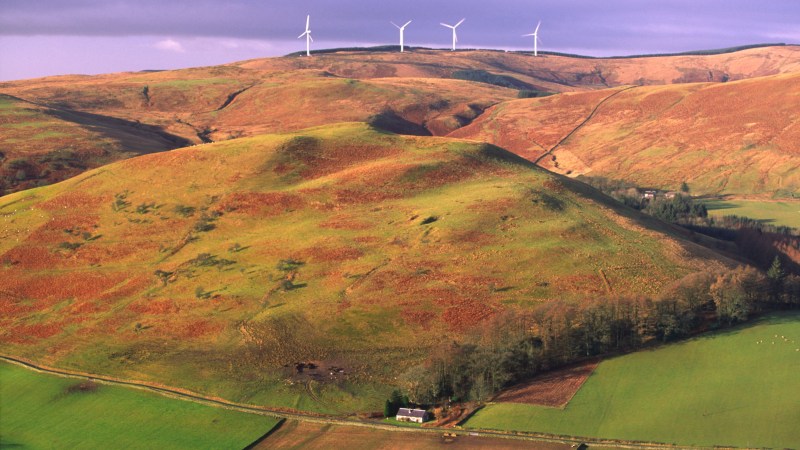Wind farm rejected over ‘significant’ impact on environment
Plans for a wind farm in the Scottish Borders have been refused due to its detrimental impact on the landscape.
The 45-turbine project, sited along the A7 between Langholm and Teviothead in Dumfries and Galloway, would have powered 325,000 homes, the developers said.
After a public inquiry the Scottish government rejected the wind farm due to its “significant” landscape and visual impact.
The Ministry of Defence had also opposed the Faw Side project, arguing that it would have an effect on the Eskdalemuir Seismic Array, which measures vibrations from nuclear tests.
Scottish Borders council and Dumfries and Galloway council had each also objected to the plans, which were sent to the Scottish government to examine in October 2021.
Historic Environment Scotland (HES) had warned that the turbines could affect the nearby Roman-era Eweslees watch tower.
Community Windpower, the firm behind the project, said that it would have helped to meet national renewable energy targets.
Rod Wood, its managing director, said: “We are obviously disappointed with this decision. However, we are taking time to review the reports and decision. We remain committed to Scotland’s renewable energy industry, businesses and supply chains.”
A letter informing Wood of the decision, from the Scottish government’s Energy and Climate Change Directorate, said that despite measures to mitigate against the effects of the project “the significant adverse landscape and visual effects, effects on residential visual amenity and impacts on defence interests at Eskdalemuir would not be acceptable”.
The letter added that, despite the renewable energy benefits that the project would provide, “these benefits must be considered carefully in the context of the negative impacts on the natural environment, as a result of the widespread significant adverse landscape and visual effects and lack of appropriate design mitigation being applied, and whether or not, on balance, they are acceptable”.
Local protesters had long campaigned against the plans. Aileen Jackson, from Scotland Against Spin, a campaign group, told the BBC’s Good Morning Scotland programme: “It was a good decision. We don’t often get many; there are far more that are consented than refused, unfortunately.
“A lot of that is down to the fact that local communities just don’t have the resources to be able to fight on a level playing field with a developer.”
Jackson added that Scotland Against Spin had been “inundated” in the past few years with local groups wanting to fight wind farms proposed for their communities. “They are not going to back down. There is going to be much more resistance” to future projects, she said.






